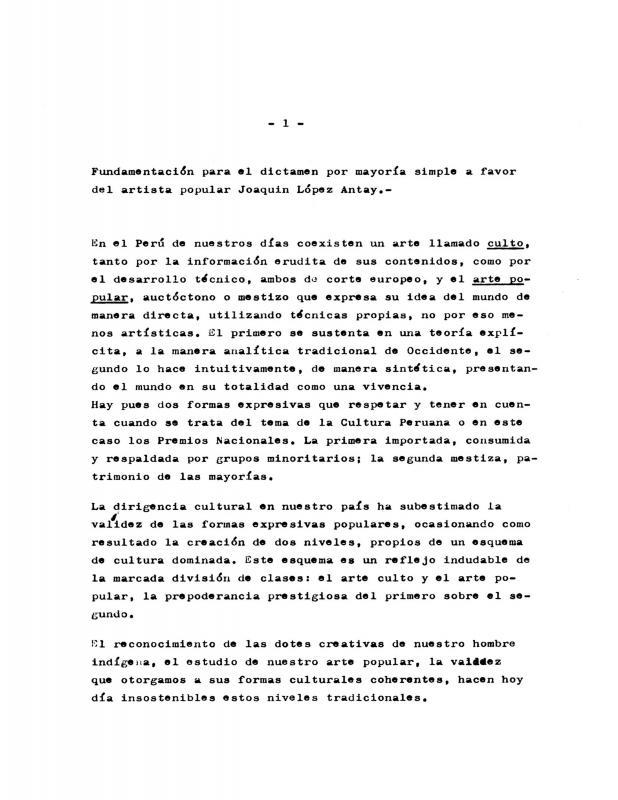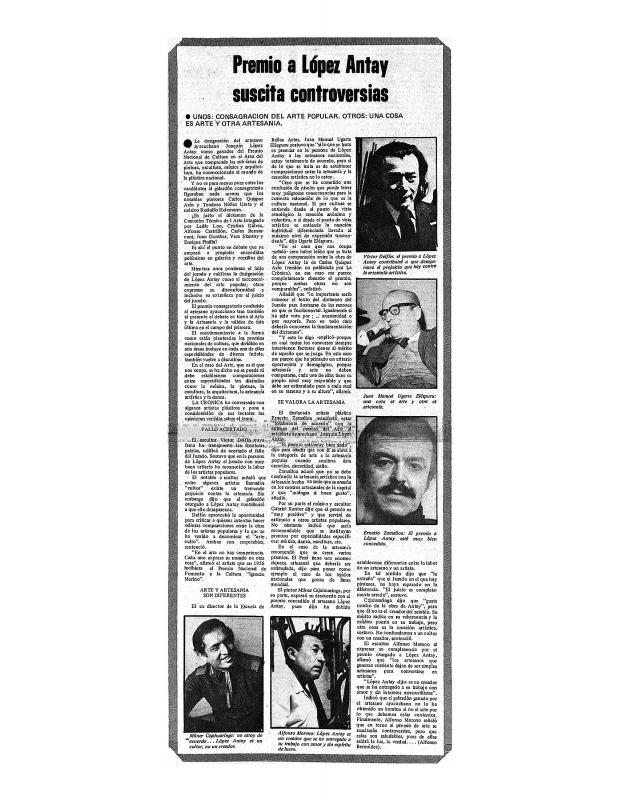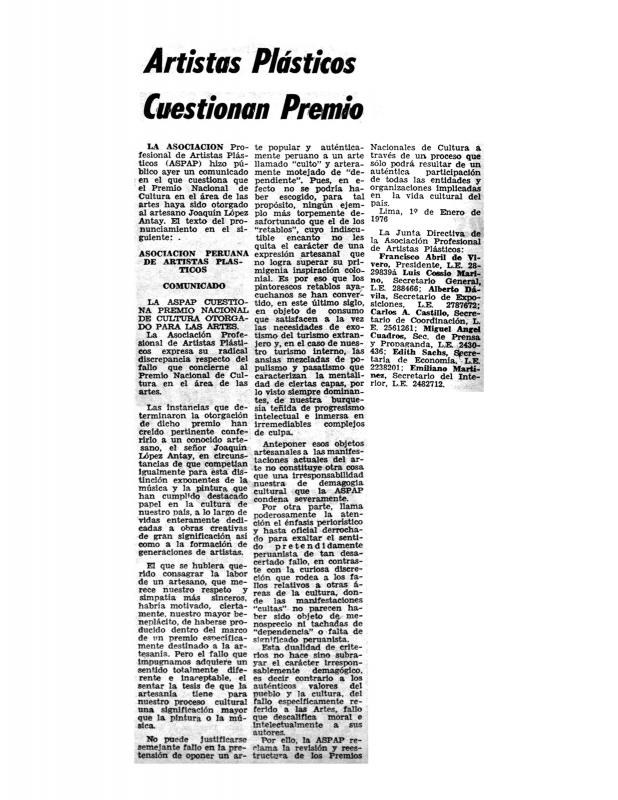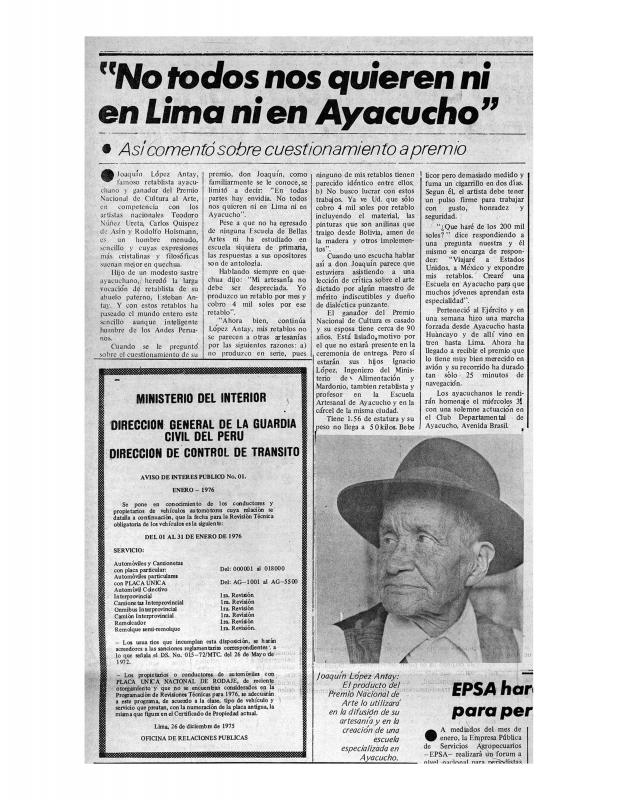Peruvian-Teuton writer José B. Adolph (1933–2008) was a member of the jury that granted the Premios Nacionales de Cultura [award] in the period before this polemic erupted.
The decision to grant the 1975 Premio Nacional de Cultura [award] in the art category to Andean altarpiece maker Joaquín López Antay (1897–1981) gave rise to one of the most heated polemics in the history of Peruvian art, one that brought the latent tensions and mistrust surrounding the cultural policies supported by the military government under General Juan Velasco Alvarado (1968–75) to the surface. In his search for an “authentic” national culture, he attempted to revalorize the image of the peasant and of peasant lifestyles as opposed to “Western” cultural forms. Indeed, granting the prize to López Antay meant ignoring widely recognized contenders such as visual artists Carlos Quízpez Asín (1900–83) and Teodoro Núñez Ureta (1912–88), and German-born academic musician Rodolfo Holzmann (1910–92).
[Regarding these events, see the following articles in the ICAA digital archive: by Alfonso Castrillón, Leslie Lee, and Carlos Bernasconi, “Fundamentación para el dictamen por mayoría simple a favor del artista popular Joaquín López Antay” (doc. no. 1135896); by Alfonso Bermúdez “Premio a López Antay suscita controversias. Unos: consagración del arte popular. Otros: una cosa es arte y otra artesanía” (doc. no. 1135879); by Francisco Abril de Vivero, Luis Cossío Marino, and Alberto Dávila “Artistas plásticos cuestionan premio” (doc. no. 1135960); and (unsigned) “‘No todos nos quieren ni en Lima ni en Ayacucho’: así comentó sobre cuestionamiento a premio (…)” (doc. no. 1135930)].




